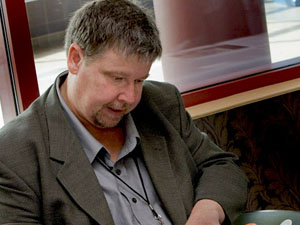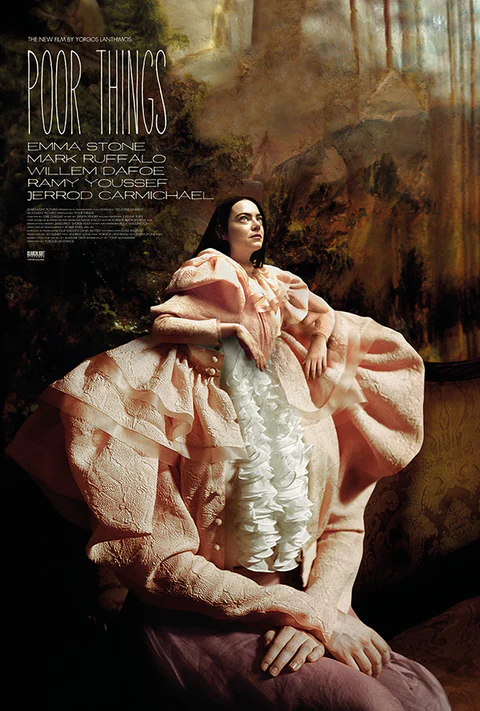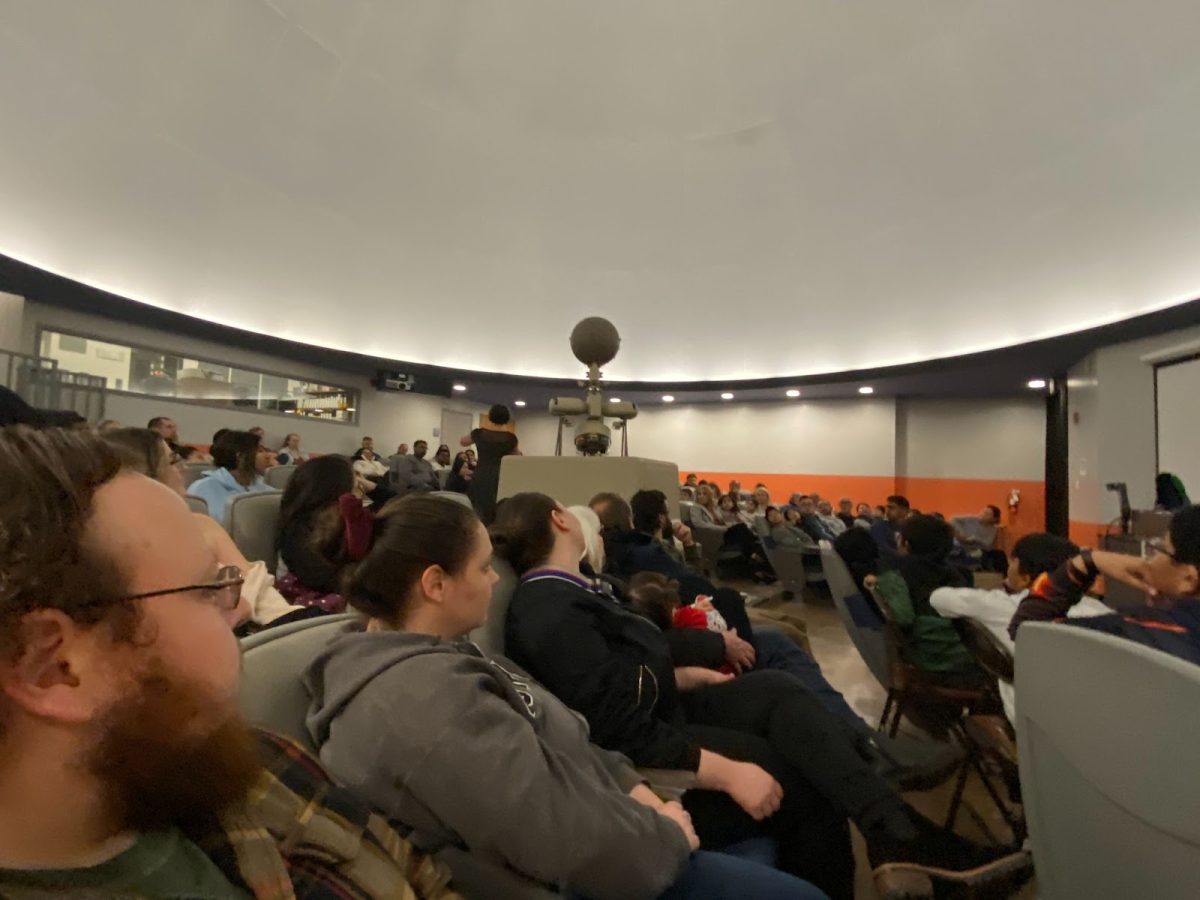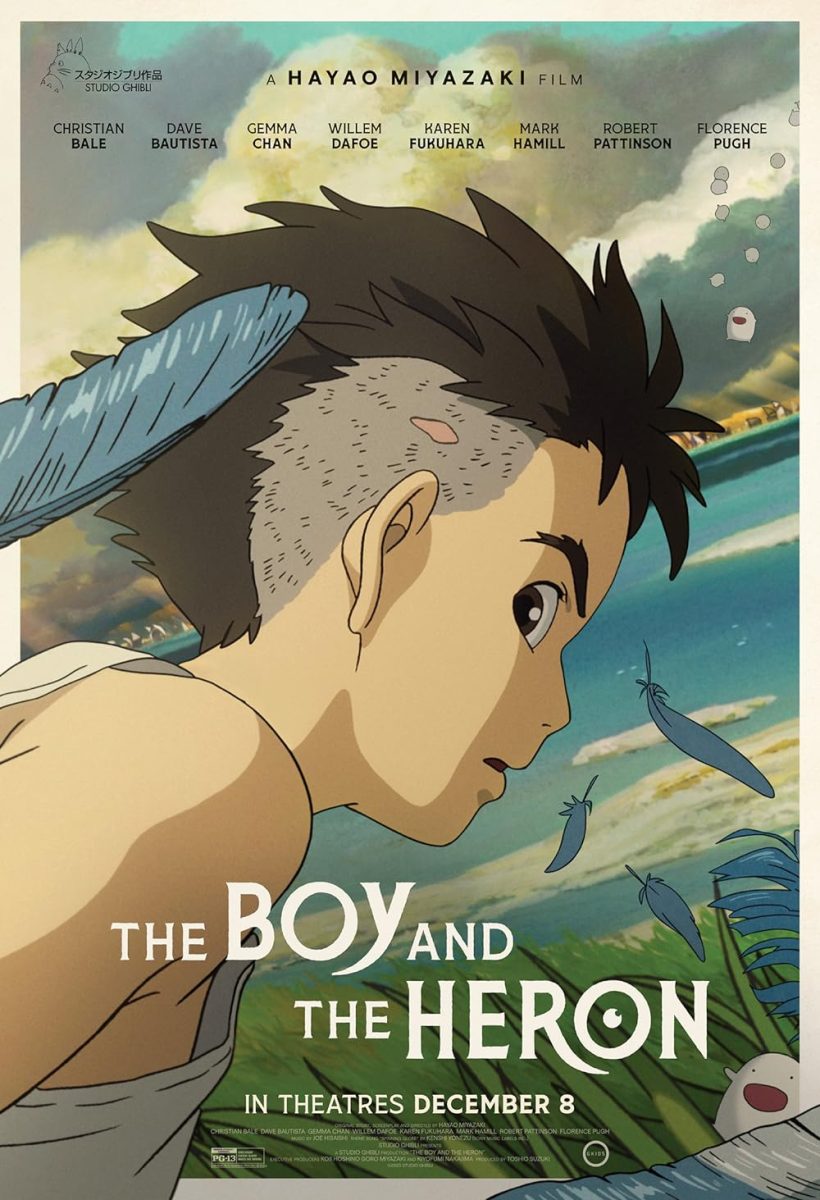
If you are into comic books and aren’t hip to the name “Bill Willingham,” there’s a special place in Hell just for you. Combine the 120+ issues of his own folklore-gone-wrong “Fables” series on Vertigo (DC Comics) with its very own Fablescon, the ample spin-offs and the fact that this guy lived in a castle in Italy to finish his most recent novel and you have a bona fide badass on your hands.
Willingham has been in the writing game for 30 years. Now he wants to see if you have what it takes to write a “drabble”–a short story exactly 100 words long (emphasis on exactly)–with a little contest judged by none other than himself. Email your “drabble” to ane@sundial.csun.edu by Monday, May 6. The Sundial staff will select five finalists and pass them on to Bill. Only one submission per contestant is allowed and this contest is available to CSUN students only. He’ll select a grand prize winner, who will get:
• Their entry published in the Daily Sundial
• A Fables vol. 1 hardcover autographed by Bill Willingham
• A personal, 15-minute writing critique over the phone from Bill Willingham
Daily Sundial: Now is your chance to convince our readers to start reading anything you’ve worked on. What should they pick up and why?
Bill Willingham: I guess just because it’s available and it starts the story, the “Fables” first issue or first collection. The “why” is because stories are best done from the beginning.
DS: What gave you the idea for this 100-word-story competition?
BW: 100-word-story, I’m not sure when I first encountered the phenomenon, I suppose I ran across it online like many things. But it’s just elegant. It’s tough to do a short story, as a matter of fact, what’s the line, “I didn’t have enough time to make a short story so I gave you a long one.” It really is, because you have to cut and trim and whittle things down to their most basic essence. You need to spare, there are no other words to spare when it has to be exactly 100 words, so the challenge of that. As a comic book writer we need to train ourselves to write sparely because we just don’t have the room for long, drawn out conversations or just the droning kind of speech you can kind of get in prose books because you have the room there to let yourself go. I think that’s what drew me to it, but I’m certain that I discovered the phenomenon of the 100-word-story online. The other thing I like about it is it can’t be about 100 words, it’s exactly; no more, no less, and that takes some effort. So yeah, I enjoy them.
DS: You’ve got “Fables” which all about fairy tale characters, then your children’s novel “Down the Mysterly River” is filled with fairy tale elements, where did this infatuation with fairy tales come from?
BW: It was inculcated into me early on in life. As a child I was a fan of the Bullwinkle cartoon show, and as everyone knows the Bullwinkle cartoon show also featured a cartoon in it called “Fractured Fairy Tales,” in which fairy tales would kind of be rewritten and mockingly re-plotted so that the villains win sometimes or that the wolf is the victim, etc. As a child I was a little concerned about this because I thought there were rules that govern everything. I didn’t think you could just rewrite the fairy tales to have them come out differently. I asked my mother about it, she was in the room when I was watching it one day and she explained the whole idea of folklore and public domain. I don’t think she used the term “public domain” but just the whole concept that there’s a whole branch of stories that we all own, and anyone who wants to can do anything they want to with it, which just blew my mind as a kid because I really did think there were rules and committees and agencies governing everything in life, because why wouldn’t there be? There were rules and things governing every aspect of my life, so the idea of the freedom that I could just take all these characters and make up any story I want with them, I think that stayed with me forever. Even to the point where in later storytelling life and doing superheroes and stuff I kept inserting fairy tale elements into stories where they probably didn’t belong. I think Fables was just an admission to myself that this is what I want to be writing, so why not go ahead and write it?
DS: What’s it like manipulating characters like Snow White and the Big Bad Wolf, throwing them in a New York apartment building and giving them real-life conflict?
BW: I guess the original Snow White story didn’t cover a lot of real-life conflict. I would hope that back then little girls, just because they happened to be prettier than their stepmother, weren’t taken out into the woods to be butchered too often. And certainly they didn’t survive by falling in with a bunch of dwarves, or one presumes that didn’t happen a lot. I don’t know that my version of Snow White’s dilemmas are more real-life than those though. You know, getting accidentally impregnated by the son of the North Wind, that probably doesn’t happen to a lot of women these days. Her trials and her frustrations, to continue to use her as an example, are probably as fantastical as anyone’s, as any fairy tale story. The realism probably comes from the reaction and response. The fairy tale stories didn’t show a lot of practical people, although from time to time. But Snow and Bigby and the others, they respond to their trials and tribulations I think in a more modern way. Even when we’re harkening back to the fact that she’s a little too old fashioned by today’s standards, I think readers can look and say “That’s at least one of the ways in which a person today would naturally respond to such a thing.”
DS: I’ve read that you said “Fables” was intended from the start as a metaphor for the Israeli-Palestinian conflict, how was that inspired?
BW: I don’t know that it was intended to but that certainly entered into it. The idea of Fables as refugees was very much a kind of recreation of the Jewish Diaspora. There’s the fact that they were scattered all over and longed for their homelands again someday. It was also of course inspired by things like Ellis Island. The idea that you want freedom, you want a start over, you want a new life. You come to America through Ellis Island and most of them end up somewhere in New York, and Fables was very much a kind of fantastical recreation of that as well. I think, like any story, there’s a lot of different inspirations and motivations that go into it.
DS: How about the spin-offs, where do those fit in?
BW: Where do the spin-offs fit in? I suppose where we can find places to fit them. In every case that we do a spin-off or a special story, it is “Here’s something we’d love to do story-wise that we can’t fit into the main storyline, so let’s start a new series or let’s do a special collection or something.” The idea is that the stories come first. You think of good story and then worry about where they might fit. You know, creating spin-offs when you need them to accommodate a story that doesn’t fit in with the regular story is an easy solution.
DS: How did Fablescon come about?
BW: It was almost a result of a drunken bar bet. Fablescon was kind of a challenge to myself because, like anyone that attends a lot of conventions, I would make a mental list of “Boy if I ever get a convention of my own I’d do more of this or less of this or I’d change this or I’d do it this way,” the way people do. I was silly enough to mention this out loud to some friends. I think there was a little bit of wine involved one night a little more than a year ago, and one of those friends says “That’s it, we’re doing it, we’re gonna do that show,” and I suddenly got swept up into it and we’re gonna do it. It was just a process of “I think there could be a nice show done along these lines” and I’m interested in seeing if that’s the case or if I’m completely diluted. And it seems to have proven out. I’m glad, I’m pretty happy with the way it turned out.
DS: “Peter and Max: a Fables Novel” was released in 2009, “Down the Mysterly River” in 2012, now your newest novel, “Tom Harrow,” is already in to your publisher. Why the increased concentration on novels?
BW: Because they’re more of a challenge. Telling a good story is always a challenge. There’s so many bad stories out there it’s clear that one has to work hard to tell a good one. But the actual mechanics of how to do a story in comic book form are no longer a mystery to me, they’re no longer a challenge. I mean, I know the process. I don’t really know the process as well, as comfortably, in doing prose work. So yeah, the challenge of doing stories in that format is there and that appeals to me. Plus there’s just some kind of stories that just don’t do well in another format, and I think in the case of “Down the Mysterly River” and “Peter and Max,” they were both stories that would make fine novels and inadequate comic books.
DS: So you stayed Machiavelli’s Castle in Italy while writing “Tom O’Harrow,” why?
BW: I needed to finish the book. When I’m working at home the big projects I work on that don’t have a deadline always get bumped in favor of the other things that need to be done right now, right today, etc. etc. Plus, when your home, you’re friends, your family, the people in your life know where to find you. As a result it was tough finding enough time to get the rest of this novel done. So I said to my trusted assistant, Stephanie, I said “Find me a place to go write where I can be away from people, and as long as I’m going to go away let’s go somewhere nice. And since we were talking about Italy, she looked in Italy and she found a couple of places and I said “That sounds good, book it” and the next day she said “or one of the villas used to be owned by Machiavelli,” and I said “That’s obviously where we have to stay.” Yeah, it just came abut by that, by an internet search. [Peter and max were largely written at Rudyard Kipling’s mansion in Vermont. As a matter of fact, on the very same desk in which Kipling created “The Jungle Book” characters and various things, so to find a very cool in which to do the next one just seemed like the thing to do. The problem is now I’m wondering with the third novel do I have to go find some cool historic place or will I be completely writers-blocked without some kind of interesting literary ghost hanging around?
DS: Did it add anything to the novel?
BW: Well, I guess a sense of coolness. There was no point at which I was not aware at what a cool place this was, and maybe that enthusiasm allowed me to write better or at least longer during the day. The other thing of course is when you go away somewhere expensive to write a novel, you damn well better get the novel done to justify that expensive trip, so maybe there was some of that in there as well. I’m a complete skeptic, I don’t really believe in ghosts and spiritual inspiration. That said, it certainly felt as if the stars were correctly aligned in order for this to happen. In a practical way, there was one scene that I decided to set in Italy, in that area of Italy, that was originally going to be set in Pennsylvania. There was no reason it had to be in a specific place, why not change it to Italy?
DS: Does “Tom O’Harrow” have anything in store for Fables fans?
BW: Oh I think so. As a matter of fact, there’s a fictional universe that I’ve been carrying around in my head for a while, a non-“Fables” fictional universe that showed up a little bit in the very short-lived series “Coventry” published by Fantagraphics Books that lasted all of three issues before I could no longer afford to do it. But it takes place in that universe and it’s also the setting in which the novel I’m about to announce on Kickstarter in a day or two, illustrated by Frank Cho, takes place. So there are going to be stories written within that fictional universe hopefully for some time to come. I think Fables readers will enjoy it. I mean it’s a different kind of place with different kinds of people in it, but the things that interest me as a writer probably leak into both sets of stories.
DS: You started off doing a lot of artwork for RPGs, you wrote and illustrated your first comic series “Elementals,” was it a conscious decision to ease up on the drawing and focus on your writing?
BW: It was a long unconscious decision mostly. I started off being very quick drawing. I could do several comic pages a day if I needed to, but they weren’t several good comic pages a day, at least not by my standards. And the problem is that as you grow as an artist or grow as a writer your standards for what’s acceptable increase probably faster than your talent and your abilities. So my standards as to what is acceptable to be drawn, to be put out there under my name got higher than my talent and my ability and my speed as an artist to keep up, so I just gradually did less and less art and more and more writing. Writing takes its time and its toll too, but not in the same arena as art. Right now, if all I wanted to do was draw and write a single series, I could do that, I could fit that in. But I couldn’t do anything else but that. I was going to draw “Shadowpact” for DC Comics for a while in addition to writing it and I found out that I could keep up if I gave up things like “Fables” and the novels and other stuff, which was not a price I was willing to pay. So if I got too slow, writing took over.
DS: You’ve done tons of writing for DC and its Vertigo imprint, but only worked with Marvel for one issue of X-Men, why is that?
BW: One issue of X-Men and four issues of a miniseries about the Warriors Three, the Thor supporting characters. I don’t know, it just seemed to have worked out that way. DC was the first to give me work of the two, and in the course of a career I guess when you’ve done some work and you want to do more work you tend to go back to the same people who gave you those jobs in the first place. There’s no philosophical idea at work here, no “I like these guys and not these guys,” none of that. It’s just the career inertia is all.
DS: What is the biggest difference writing for Vertigo as opposed to its parent company DC?
BW: Well in Vertigo, the work I do for them now is “Fables,” and that’s owned by me so I get to decide where the story’s going. Working with DCU the editors and owners of the characters get to decide fundamentally where the stories go, which is only correct. If it’s your toy you get to decide how it’s played with. That’s the main difference. I enjoy being able to craft my own stories and then be certain that the decisions on where that story is going will not change over time or on someone else’s whim.
DS: If there’s anything else you want to add, now would be the time.
BW: If the readers are currently among those who are reading “Fables” thank you very much, I hope you continue to do so, and if you aren’t, I hope you’ll be inspired to pick up an issue or two and give it a shot.






